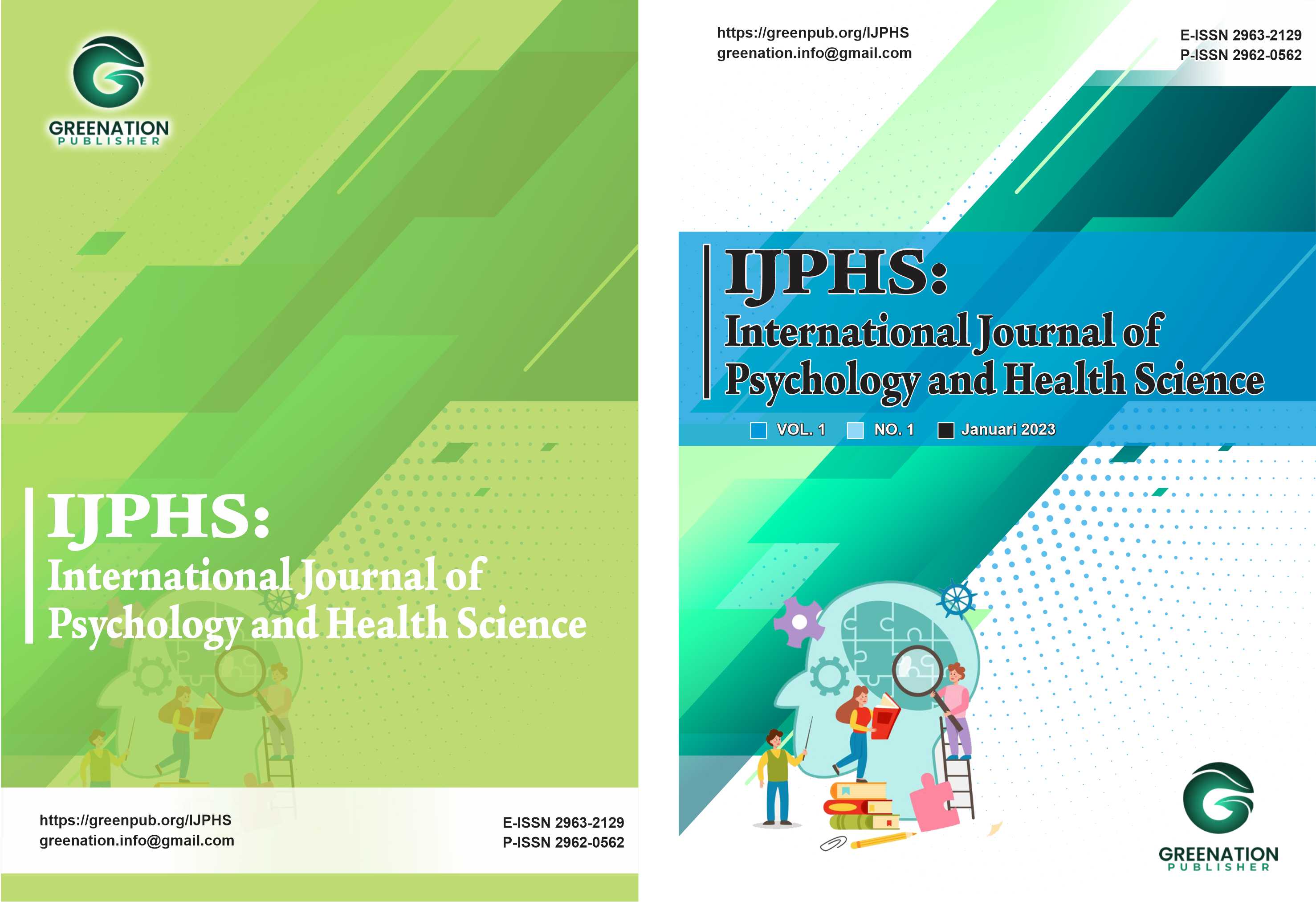The Influence of School Leadership and The School Environment on The Performance of Teachers at Secondary School São Francisco De Assis, in The 2022 School Year
DOI:
https://doi.org/10.38035/ijphs.v1i4.714Keywords:
School Leadership, School Environment, Teacher PerformanceAbstract
In this research, the researcher examines the performance of teachers using the independent variables are school leadership and school environment. The population of this study were teachers who were related to school leadership and the school environment was made up of structures or sectors withinterest in the work of teachers 68 people. The data collection method used is the questionnaire method. The technique to analyze is multiple linear regression where the results show y = a+ b1.X2 + b2.x2 + e, the multiple linear regression result y = 11.447 + 0.026X1 + 0.451 X2) have a fixed value of 11,447 based on hypothesis testing for coefisien regresses school leadership (X1) with the Tcount value is 0.256 and the Ttable value is 1.668 with confidence level 5% real level 95% however the Tcount value lower than Ttable is 0.256< 1.668. This explains why the school leadership variable (X1) does not have a positive and significant effect on teacher performance (X2) based on hypothesis testing for coefisien returns school environment (X1) with the value Tcount is 4.198 and the value Ttable is 1.668 with confidence level 95% real level 5%however the value Tcount lower than Ttable is 4.198< 1.668. This explains that the School Environment variable (X2) has a positive and significant effect on teachers' performance (Y). While simultaneously obtained Fcount is 9,196 total (2.354) and a significance level of 0.000 < 5% Based on this study, it can be concluded that the research hypothesis is that there is a significant influence between School Leadership and School Environment on teachers' performance.
References
Arikunto, Suharsimi. 1998.ManajemenPenelitian, PT. RinekaCipta, Jakarta.
Bush, T. 2008. Leadership and Management Development in Education.London: Sage.
Bush, T. 2011.Theories of Educational Leadership and Management. 4th Edition. London: Sage Publications, Ltd.
CERVO, Amado Luis; BERVIAN, Antonio. Research in human and social sciences. 5. ed. São Paulo: Cortez, 2001.
Chen, J. S., 2001 ,A case study of Korean outbound travelers’ destination images by using correspondence analysis, tourism management,Vol.22 (4), PP. 345 -350.
cooper, Donaldo R, dan Pamela S. Schindler 2006, MetodeRisetBisnis. Jakarta: PT Media Global Edukasi.
Gibson, James. L, Ivancevich J. M., and Donelly Jr. 1987. Organisasi dan Manajemen. Jakarta: Erlangga
Ghozali, Imam 2009, “Aplikasi Multivariate Analysis within the SPSS Program”. Semarang: UNDIP.
g. R. Terry, 2001, ManajemenDasar, PengertiandanMasalah”, edisirevisi, cetakan 1, PenerbitBumiAksara.
Hasibuan Malayu S.P. (1999). Organisasi & Motivasi dasar peningkatan Produktivitas. Jakarta: Bumi Aksara.
Iskandar, S. (2018), Pengaruh lingkungan sekolah, disiplin kerja dan kepemimpinan kepala sekolah terhadap kinerja Guru SMKN 4 padang). Jurnal Ekobistek Fakultas ekonomi. 7 (2): 11-22
J. Supranto, 2003, Metode Penelitian Hukum dan Statistik, PT. Rineka Cipta, Jakarta.
leitwood, K., Seashore, L. K., Anderson, S., &Wahlstrom, K. 2004.How Leadership Influences Student Learning: A Review of Research for The Learning from Leader-ship Project. New York: The Wallace Foundation.
Levin, B. 2012.how to Change 5000 Schools A Practical and Positive Approach for Leading Change at Every Level. Third Printing. Cambridge, Massachusetts: Harvard University Press.
Manik, S., danSyafrina, N (2018). pengaruhlingkungankerjaterhadakkinerja guru padasekolahDasarNegri 009 Kuala TerusanKecematanPangkalanKerinci.EkodanBisnis (Riau Econom- ics and BusnessReviewe). 9 (3): 158-167.
Mangkunegara, 2001.Manajemen Sumber Daya Manusia, Bandung, Remaja, Rosdakarya.
Mulyono, 2008. manajamen administrasi & Organisasi Pendidikan. Malang. Arruzzmedia.
Northouse, P.G. 2011. Introduction to Leader-ship Concepts and Practice.London: Sage.
OLIVEIRA, A.C.P. ., & Carvalho, C. P. (2015, November). School management, principal leadership and educational results in Brazil. in proceedings of the 37th National meeting of ANPED, Florianópolis, SC.
Rivai, Veithzal. 2008. Manajemen Sumber Daya Manusia. Jakarta; CV Haji Masagi.
Riyani, Y. (2012). Faktor faktor yang Mempengaruhi Prestasi Belajar Mahasiswa. Jurnal EKSOS.8 (1) hal.19-25.
Robertson, J., & Timperley, H. (Ed.). 2011. leadership and learning. London: Sage.
Robert Donmoyer (dalam Given, Lisa M.2008),The sage encyclopedia of qualitative research methods. Thousand Oaks: Sage.
Sampurno D. (2015). Kepemimpinan kepalah sekolah, lingkungankerja, motivasikerjadankinerja Guru Di SMK negri 4 Pandeglang. jurnalPendidikanEkonomidanBisnis.3 (2).
Sedarmayanti, 2011, Tata kerjadanproduktivitaskerja, Bandung: MandarMaju.
Sedarmayanti, 2013, Manajemen SumberDaya Manusia, Bandung: RefikaAditama.
Slameto (2010). Belajar dan Faktor-faktor yang Mempengaruhinya. Jakarta: PT RinekaCipta.
singarimbun, Masri and Sofian Effendi 1989, MetodepenelitianSurvei.Jakarta. LP3ES.
Simonora, Hendry 2004.Manajemen Sumber Daya Manusia, Yogyakarta: STIE YKPN.
Smith, C. S., &Piele, P. K. 2012. School Leadership: Handbook for Excellent in Student Learning. Fourth Edition. thou-sand Oak, California: Corwin Press.
Sugyono, 2006.MetodePenelitianKuantitatif, R&D Kualitatif. Bandung: Alphabeta.
TELES, 2009. leadership path(s) in Schools: between challenges and limitationsDissertation (Master's degree in Educational science and educational administration) University of Madeira Funchal, Portugal.
Yamin, Martinis, dkk, 2010 Standarisasi kinerja guru. Jakarta. Gaung Persada.
Downloads
Published
Issue
Section
License
Copyright (c) 2024 Sancha Francisca da Conceição, Agostinho dos Santos Gonçalves, Maria da Costa

This work is licensed under a Creative Commons Attribution 4.0 International License.
Authors who publish their manuscripts in this journal agree to the following conditions:
- The copyright on each article belongs to the author(s).
- The author acknowledges that the International Journal of Psycology and Healt Science (IJPHS) has the right to be the first to publish with a Creative Commons Attribution 4.0 International license (Attribution 4.0 International (CC BY 4.0).
- Authors can submit articles separately, arrange for the non-exclusive distribution of manuscripts that have been published in this journal into other versions (e.g., sent to the author's institutional repository, publication into books, etc.), by acknowledging that the manuscript has been published for the first time in the IJPHS.





















